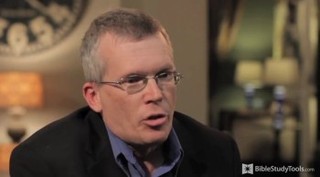
- Recent Translations
- All Translations
Videos for Genesis 15:18

Genesis 15:18 in Other Translations
Genesis 15:18 Meaning and Commentary
In the same day the Lord made a covenant with Abram
Which he confirmed by passing between the pieces and accepting his sacrifice:
saying, unto thy seed have I given this land;
he had given it in his purpose, and he had given the promise of it, and here he renews the grant, and ratifies and confirms it, even the land of Canaan, where Abram now was, though only a sojourner in it; and which is described by its boundaries and present occupants, in this and the following verses, as is usually done in grants of lands and deeds of conveyance:
from the river of Egypt, unto the great river, the river of Euphrates;
the river of Egypt is the Nile, which overflowed it annually and made it fruitful; so the Targum of Jonathan calls it the river of Egypt; it may be rendered, "from the river Mizraim or Egypt", for the name of Egypt was given to the river Nile as well as to the country, and so it is called by Homer F16; and Diodorus Siculus F17 says, the Nile was first called Egypt; some F18 think the Nile is not here meant, but a little river of Egypt that ran through the desert that lay between Palestine and Egypt; but it seems to be a branch of the river Nile, which was lesser about Palestine or Damiata, at the entrance of Egypt, than at other places. Brocardus F19 says,
``from Delta to Heliopolis were three miles, where another river was separated from the Nile, and carried to the city of Pelusium; and, adds he, this river is properly called in Scripture the river of Egypt, and at it is bounded the lot of the tribe of Judah.''This river of Egypt, or the Nile, was the southern boundary of the land of Canaan, and from hence to the river Euphrates, the eastern boundary, was the utmost extent of it in which it was ever possessed, as it was in the times of David and Solomon, ( 2 Samuel 8:3 ) ( 1 Kings 4:21 ) .
F16 Odyss. 14. vid. Pausan. Boeotica, sive l. 9. p. 606.
F17 Bibliothec. l. 1. p. 56.
F18 See Rollin's Ancient History, vol. 1. p. 92.
F19 Apud Drusium in loc.
Genesis 15:18 In-Context
Cross References 4
Footnotes 1
- [a] Or "river"